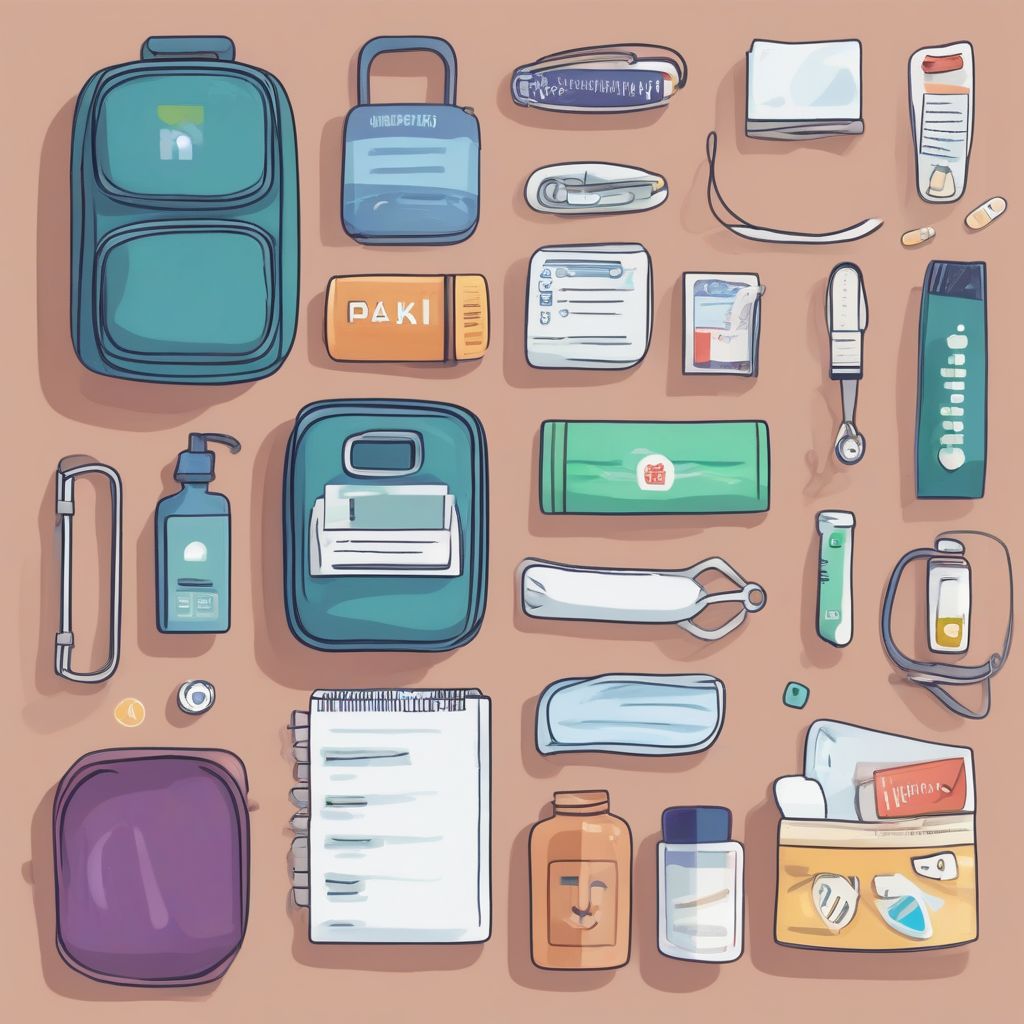Imagine this: you’re finally on that dream vacation, trekking through lush rainforests, or exploring bustling city streets. But then, disaster strikes! You wake up feeling ill, ruining your carefully planned itinerary. To avoid this travel nightmare, prioritizing your health is just as crucial as booking flights and hotels. That’s where travel health precautions come into play.
Why Travel Health Precautions Matter
Think of travel health precautions as your trusty sidekick, ensuring a smooth and enjoyable journey. Here’s why they’re non-negotiable:
- Prevent illness: Nobody wants their trip derailed by a nasty stomach bug or a mosquito-borne illness. Taking the right precautions helps minimize these risks.
- Protect yourself and others: Some diseases can spread easily, especially in crowded tourist destinations. Protecting yourself also means safeguarding those around you.
- Peace of mind: Knowing you’ve taken the necessary steps allows you to relax and fully embrace your travel experience.
Essential Travel Health Precautions: Your Pre-Trip Checklist
A little planning goes a long way! Before you pack your bags, make sure these essential travel health precautions are covered:
1. Visit Your Doctor or a Travel Health Clinic
Think of this as your first line of defense. Schedule an appointment at least 4-6 weeks before your departure. During your visit:
- Discuss your itinerary: Be specific about your destinations, planned activities, and accommodations.
- Review your medical history: Inform your doctor about any pre-existing conditions, allergies, or medications you’re currently taking.
- Get recommended vaccinations: Vaccinations are crucial for preventing diseases, and some might be mandatory for entry into certain countries.
- Talk about medications and prescriptions: Ensure you have enough medication for your trip and carry a copy of your prescription.
- Discuss travel health insurance: Unexpected medical expenses can put a damper on your trip. Travel insurance provides financial protection and peace of mind.
2. Pack a Well-Stocked Travel Health Kit
Your travel health kit is your best friend on the go. Pack these essentials:
- Medications: Include prescription medications, pain relievers, antihistamines, motion sickness medication, anti-diarrheal medication, and oral rehydration salts.
- First-aid supplies: Bandages, antiseptic wipes, antibiotic ointment, hand sanitizer, insect repellent, and sunscreen are essential.
- Personal hygiene items: Pack a travel-sized hand sanitizer, wet wipes, and tissues.
3. Research Food and Water Safety Tips
Food and waterborne illnesses are common travel woes, but preventable with these tips:
- Drink safe water: Opt for bottled water, boil tap water for at least one minute, or use a water purifier.
- Be cautious with food: Eat thoroughly cooked food, avoid street food vendors with questionable hygiene practices, and wash fruits and vegetables with safe water.
- Practice good hand hygiene: Wash your hands frequently with soap and water, especially before eating and after using the restroom.
4. Protect Yourself From Insects and Animals
Mosquitoes, ticks, and other critters can transmit diseases. Here’s how to protect yourself:
- Use insect repellent: Choose a repellent containing DEET, picaridin, or oil of lemon eucalyptus.
- Wear protective clothing: Opt for long sleeves, pants, and socks when in areas with high insect activity.
- Sleep under mosquito nets: If you’re staying in an area with mosquito-borne illnesses, use a mosquito net treated with insecticide.
- Avoid contact with animals: Don’t touch or feed stray animals, as they could carry diseases.
 Travel Health Checklist
Travel Health Checklist
Navigating Common Travel Health Concerns:
Even the most prepared traveler can encounter health hiccups. Here’s how to tackle common issues:
1. Traveler’s Diarrhea:
- Stay hydrated: Drink plenty of fluids, such as bottled water or oral rehydration solutions, to prevent dehydration.
- Eat bland foods: Stick to easy-to-digest foods like toast, rice, bananas, and crackers.
- Seek medical advice: If symptoms are severe or persist for more than a few days, consult a doctor.
2. Altitude Sickness:
- Ascend gradually: Allow your body time to acclimatize to higher altitudes.
- Stay hydrated: Drink plenty of water to stay hydrated.
- Consider medication: Your doctor might recommend medication to help prevent altitude sickness.
3. Jet Lag:
- Adjust your sleep schedule: Start adjusting your sleep schedule a few days before your trip to align with your destination’s time zone.
- Stay hydrated: Drink plenty of water to combat dehydration from flying.
- Avoid caffeine and alcohol: These can interfere with sleep patterns and worsen jet lag symptoms.
Tips for Healthy Travel Habits
- Stay active: Incorporate physical activity into your itinerary, such as walking tours or hikes.
- Get enough sleep: Prioritize sleep to combat fatigue and boost your immune system.
- Manage stress: Travel can be stressful. Practice relaxation techniques like deep breathing or meditation.
- Stay informed: Stay updated on travel advisories and health alerts for your destination.
Conclusion: Embark on Your Journey with Confidence
Traveling should be an adventure, not a recipe for illness! By following these travel health precautions, you can significantly reduce your risk of health issues and enjoy a worry-free trip. Remember, preparation is key. Plan ahead, consult with your doctor, and pack smart. Here’s to safe and healthy travels!
[amazon bestseller=”travel first aid kit”]
